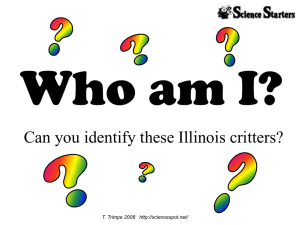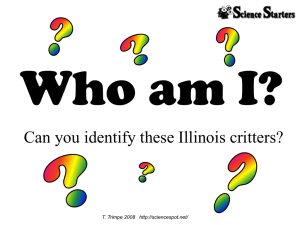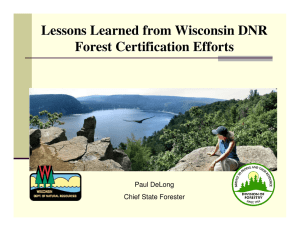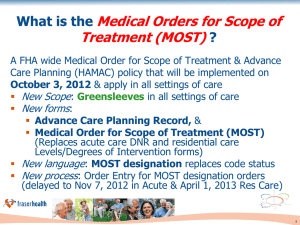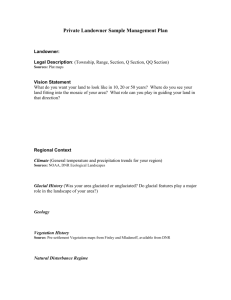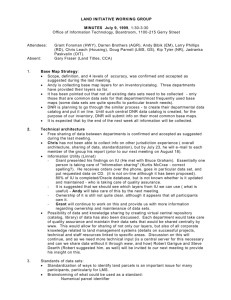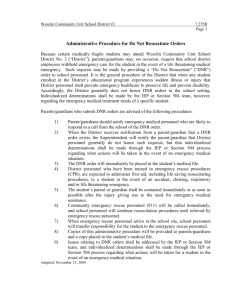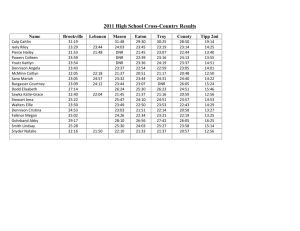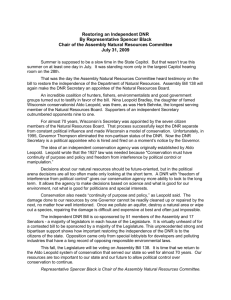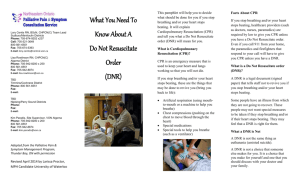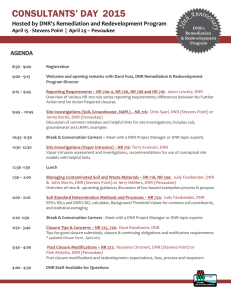Project Manager: Melissa K. Treml, is the Fisheries Research and
advertisement
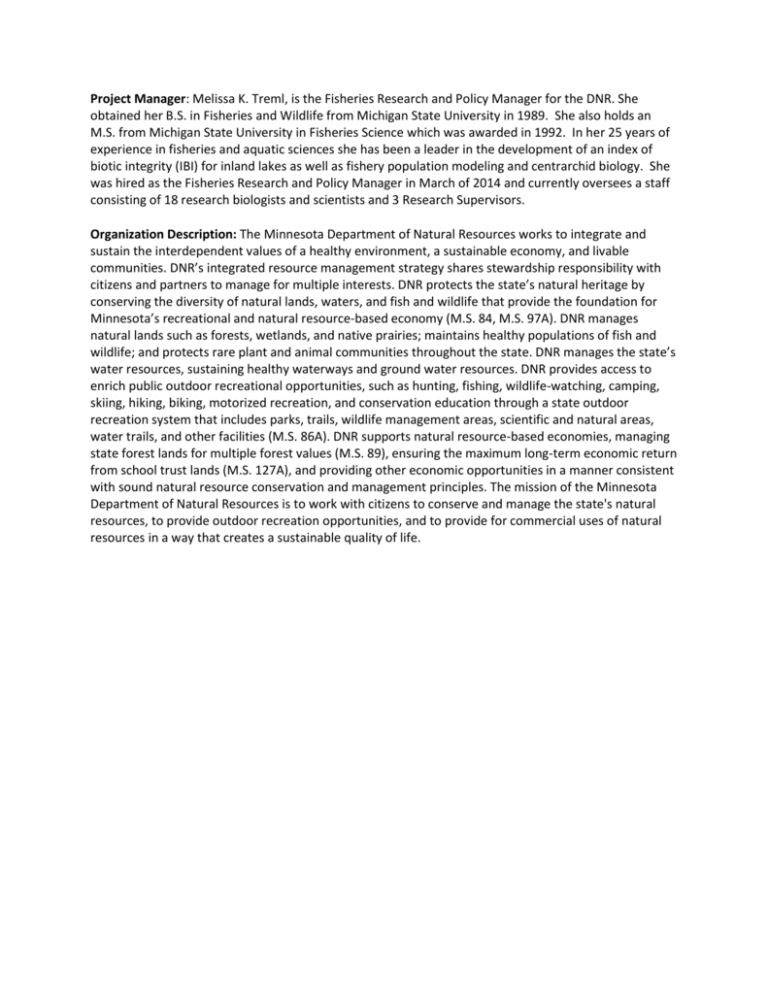
Project Manager: Melissa K. Treml, is the Fisheries Research and Policy Manager for the DNR. She obtained her B.S. in Fisheries and Wildlife from Michigan State University in 1989. She also holds an M.S. from Michigan State University in Fisheries Science which was awarded in 1992. In her 25 years of experience in fisheries and aquatic sciences she has been a leader in the development of an index of biotic integrity (IBI) for inland lakes as well as fishery population modeling and centrarchid biology. She was hired as the Fisheries Research and Policy Manager in March of 2014 and currently oversees a staff consisting of 18 research biologists and scientists and 3 Research Supervisors. Organization Description: The Minnesota Department of Natural Resources works to integrate and sustain the interdependent values of a healthy environment, a sustainable economy, and livable communities. DNR’s integrated resource management strategy shares stewardship responsibility with citizens and partners to manage for multiple interests. DNR protects the state’s natural heritage by conserving the diversity of natural lands, waters, and fish and wildlife that provide the foundation for Minnesota’s recreational and natural resource-based economy (M.S. 84, M.S. 97A). DNR manages natural lands such as forests, wetlands, and native prairies; maintains healthy populations of fish and wildlife; and protects rare plant and animal communities throughout the state. DNR manages the state’s water resources, sustaining healthy waterways and ground water resources. DNR provides access to enrich public outdoor recreational opportunities, such as hunting, fishing, wildlife-watching, camping, skiing, hiking, biking, motorized recreation, and conservation education through a state outdoor recreation system that includes parks, trails, wildlife management areas, scientific and natural areas, water trails, and other facilities (M.S. 86A). DNR supports natural resource-based economies, managing state forest lands for multiple forest values (M.S. 89), ensuring the maximum long-term economic return from school trust lands (M.S. 127A), and providing other economic opportunities in a manner consistent with sound natural resource conservation and management principles. The mission of the Minnesota Department of Natural Resources is to work with citizens to conserve and manage the state's natural resources, to provide outdoor recreation opportunities, and to provide for commercial uses of natural resources in a way that creates a sustainable quality of life.
